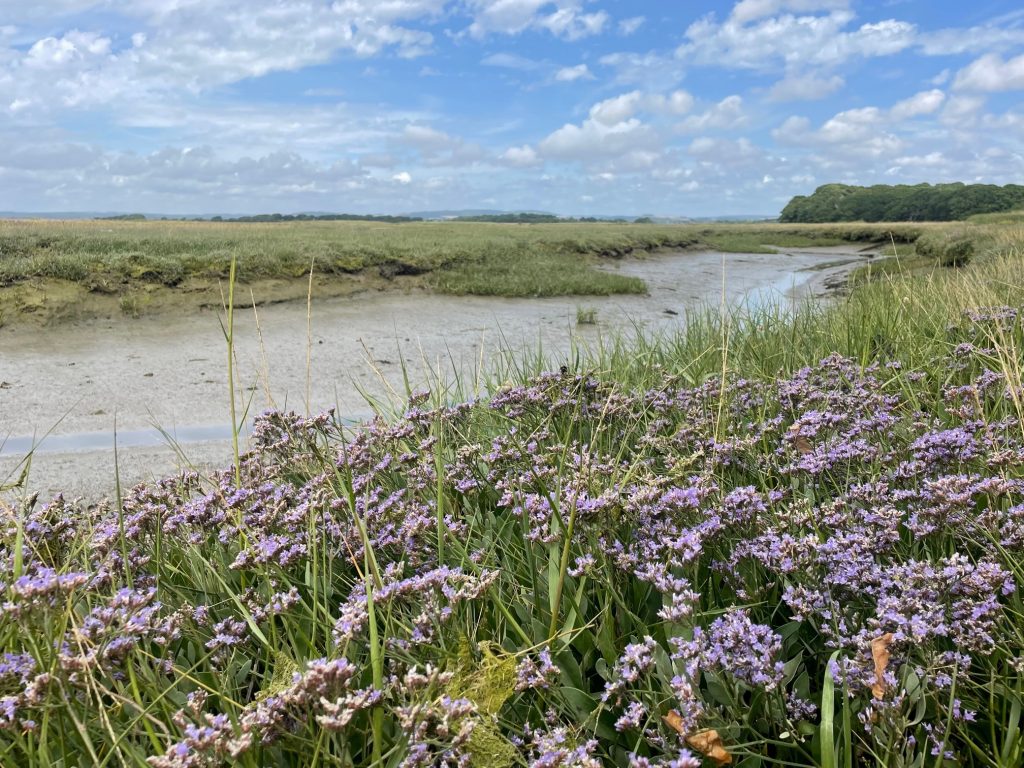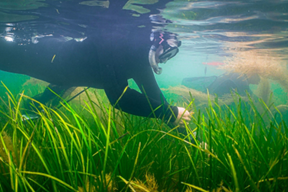In July 2024 the Solent Seascape Project was endorsed by the United Nations. Chichester Harbour Conservancy is a proud partner in the project, the first seascape-scale marine restoration project in the UK, leading the way to restore, protect and connect nature within the Solent.
The United Nations Ocean Decade brings together individuals and organisations to strengthen science-based solutions to urgent ocean issues. Spanning 66 countries, the UN Decade of Ocean Science for Sustainable Development (2021-2030) includes ten challenges that aim to use science for the benefit of the ocean.
The Solent Seascape Project has been selected as an official “action” of the UN Ocean Decade because it actively addresses three of these challenges:
- To protect and restore ecosystems,
- To unlock ocean-based solutions to climate change, and
- To promote positive behaviour change, improving humanity’s relationship with the ocean.
Project Coordinator Rosalie Wright of Blue Marine Foundation said:
The inclusion of the Solent Seascape Project as part of the Ocean Decade reflects its international importance and global standard work. It allows it to connect with, and learn from, multiple other Decade Actions, ensuring the project is at the cutting edge of marine research and restoration. This will help to create a more resilient coastline by increasing carbon stores, reducing the impact of climate change, protecting coastal homes from erosion and sea level rise, improving water quality and providing areas for people to explore their natural environment.

Connectivity of seascape habitats
The Solent Seascape Project recognises the critical role of connectivity across key habitats -salt marshes, seagrass beds, oyster reefs and seabird sites, and the collective benefits they provide for people and nature. It is working to scientifically monitor the benefits of seascape-scale restoration, including measuring the carbon storage potential of restored habitats such as saltmarsh and seagrass meadows. Restoration of all four key habitats included in the project has already started with seven seabird sites, four trial sites for seagrass, 0.25ha for salt marsh and 0.25ha for oysters.
United Nations Recognition – the UN Decade of Ocean Science
Vidar Helgesen, Executive Secretary of UNESCO’s Intergovernmental Oceanographic Commission (UNESCO-IOC) said:
“Since the start of the Decade, we have built a strong awareness of the need for action within our community. Now, we are channelling this determination into concrete efforts to get the best results.”
What is the Solent Seascape Project?
The Solent Seascape Project is a partnership of ten influential organisations working together to protect and restore important habitats within the Solent, a diverse estuarine system between the Isle of Wight and mainland England. These habitats include oyster reefs, saltmarsh, seagrass meadows andseabird nesting sites. Working collectively with local stakeholders and communities, the project aims to codevelop an ambitious recovery plan for the Solent, as well as actively restoring and reconnecting critical coastal habitats to create a thriving, functioning seascape for all.
As well as Chichester Harbour Conservancy, partners in the Solent Seascape Project include Blue Marine Foundation, RSPB, Hampshire and Isle of Wight Wildlife Trust, Project Seagrass, Natural England, Environment Agency, Coastal Partners, Isle of Wight Estuaries Project and the University of Portsmouth. Here in Chichester Harbour, some of our nature recovery work comes under the Solent Seascape Project umbrella.
East Head Impact and the Endangered Landscapes & Seascapes Programme (ELSP), managed by the Cambridge Conservation Initiative and funded by Arcadia, support the Solent Seascape Project.
